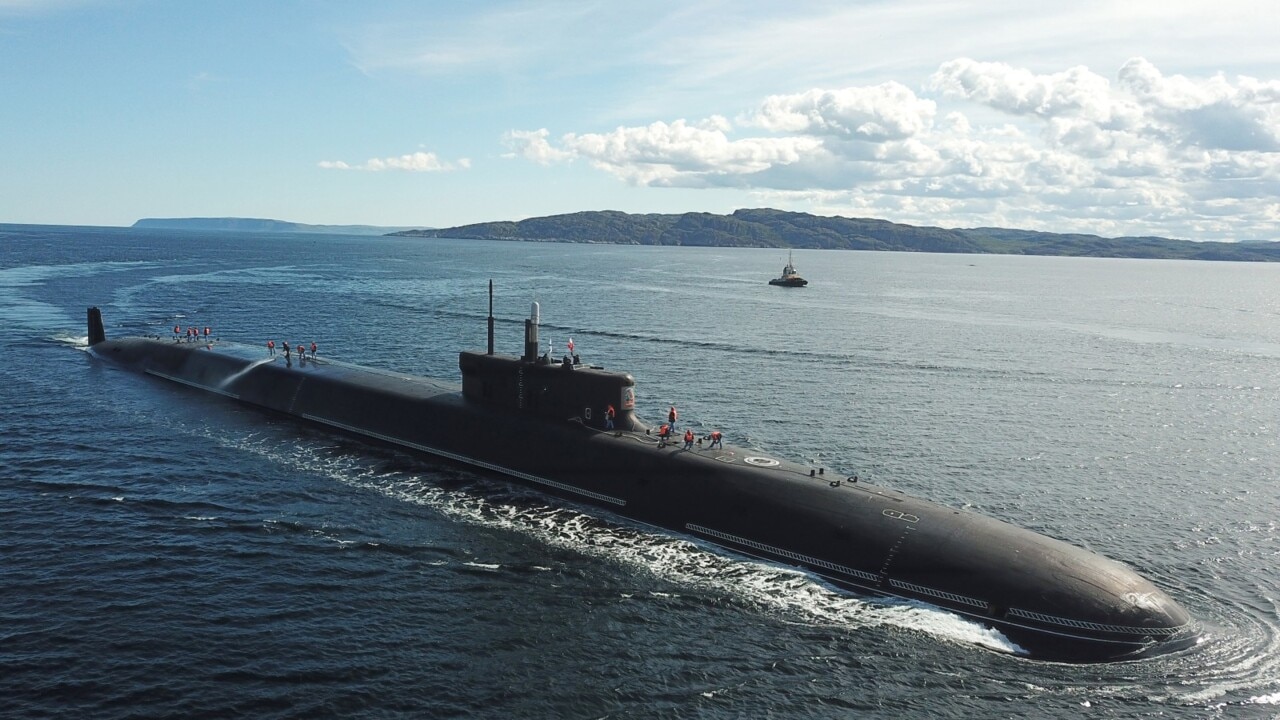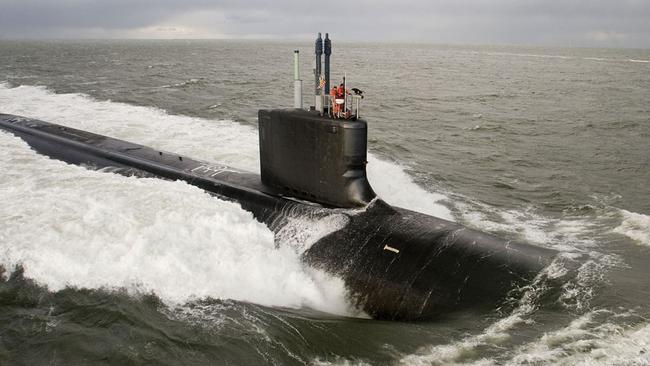US submarine deal draws out positions on China
On one level the subs deal is dry debate about what sort of undersea weapons Australia will have but at a deeper level it is a debate about the choices we make in the face of the rise of China.

James Campbell
Don't miss out on the headlines from James Campbell. Followed categories will be added to My News.
It goes without saying the decision by Morrison government to acquire nuclear submarines is a big deal. Not least because the move was immediately endorsed by Anthony Albanese, which means it should stick if he is the PM after the next election.
On one level, the subs deal is dry debate about what sort of undersea weapons Australia will have at a time when I suspect most of the people reading this will be either long-retired or dead.

But at a deeper level it is really a debate about the choices we make in the face of the rise of China.
To the deal’s advocates, dumping the diesel-powered French subs that were meant to be built in Adelaide makes strategic sense.
While conventional subs are said to be quieter than nuclear ones when they are running off their batteries rather than their diesel engines, nuclear subs are faster and can stay submerged almost indefinitely.
The choice between the two is not just about what sort of kit we end up with, but it also involves our attitude to nuclear power.
Australia does not have a domestic nuclear industry and the government has made it clear it has no appetite for the fight building one would involve. The reactors for our subs will therefore be built overseas and installed without the need for us to refuel them.
Labor has made it clear its support for the subs is dependent on this being the case.
Buying the systems off the shelf has several things going for it – not least of which is that it will be quicker and much, much cheaper than building them from scratch.
But our limited request has, I suspect, also made it easier to persuade the US to give us access to their nuclear technology – something they have been reluctant to do with anyone apart from the UK. However, given we are simply installing something pre-built, it is arguable how much of it they are actually sharing with us.
To those of us who think we are in a new Cold War and that such a war is worth fighting, the decision to integrate our weapons systems so closely with the US is an easy one because we assume our ongoing dependency on the US is a fact of life and therefore anything that increases our ties to it is a good thing.
But this is precisely what alarms the critics, who fall into different schools.
The first might be called the conservative pessimists, those who although they might like and admire the US and the role it plays in the world, have decided either that it is a power whose time in the sun is coming to an end, or have observed the recent lurches of its foreign policy and decided it can no longer be relied upon.
These people tend not to be fans of China; they just think that when push comes to shove, the US won’t do anything if it tries to take over Taiwan, just as the US did nothing when China moved to militarise the South China Sea.
In which case, given we’re never going to be in a position to match them, we need to come to some kind of accommodation with China.
They think the sub deal is a bad idea because while it will antagonise the Chinese, given the US’s growing weakness it won’t make us any safer.
Then there are those such as Kevin Rudd who worry that the US is too belligerent and the deal will lock us into any future war with China – or in the Ruddster’s strange and beautiful language, it’s “a slippery slope to a precommitment to becoming an active belligerent”.
Paul Keating’s objections on the other hand are a little from Column A and a little of Column B.
On one hand he worries like Rudd that increasing our ability to act collectively in any military engagement by the US against China will “rob Australia of any freedom or choice in any engagement it (the US) may deem appropriate”.
His main objection however is that the Americans are losers: “If the US military, with all its might, could not beat a bunch of Taliban rebels with AK-47 rifles in pickup trucks, what chance would it have in a full-blown war against China, not only the biggest state in the world but the commander and occupant of the largest land mass in Asia?”
He concluded by observing “such is the continuing failure of the Liberal Party to have any
faith in Australia’s capacity, but, more particularly, its rights to its own independence and freedom of action”.
What sort of independence and freedom of action Australia would enjoy in a region dominated by Beijing, Keating didn’t say.
More Coverage
Originally published as US submarine deal draws out positions on China





